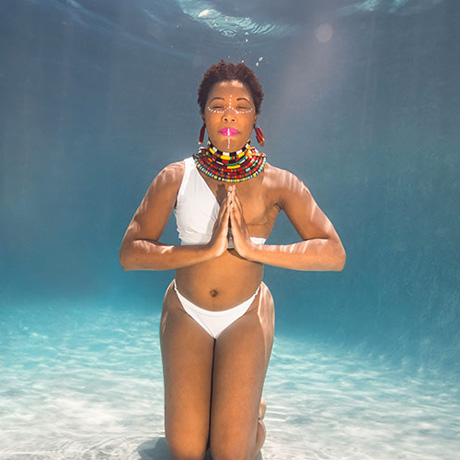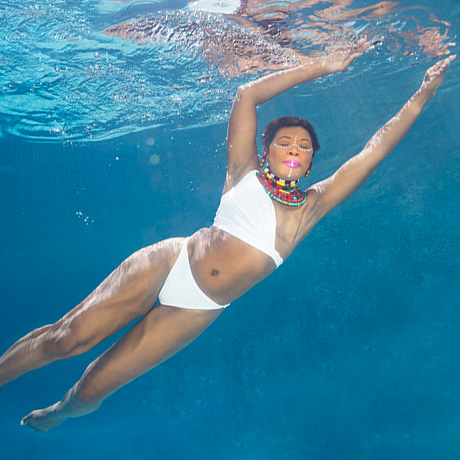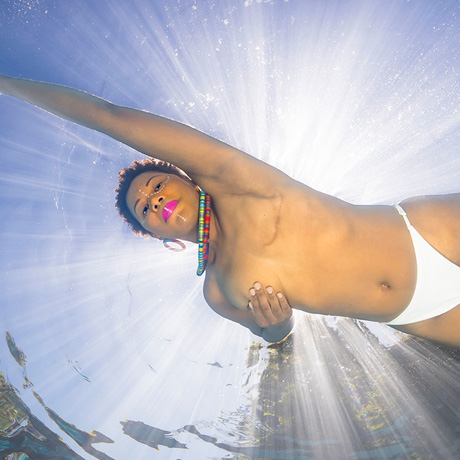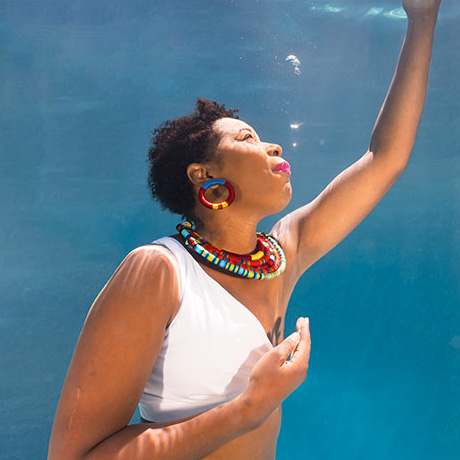«« Please drag the arrows to see before & after underwater transformation »»
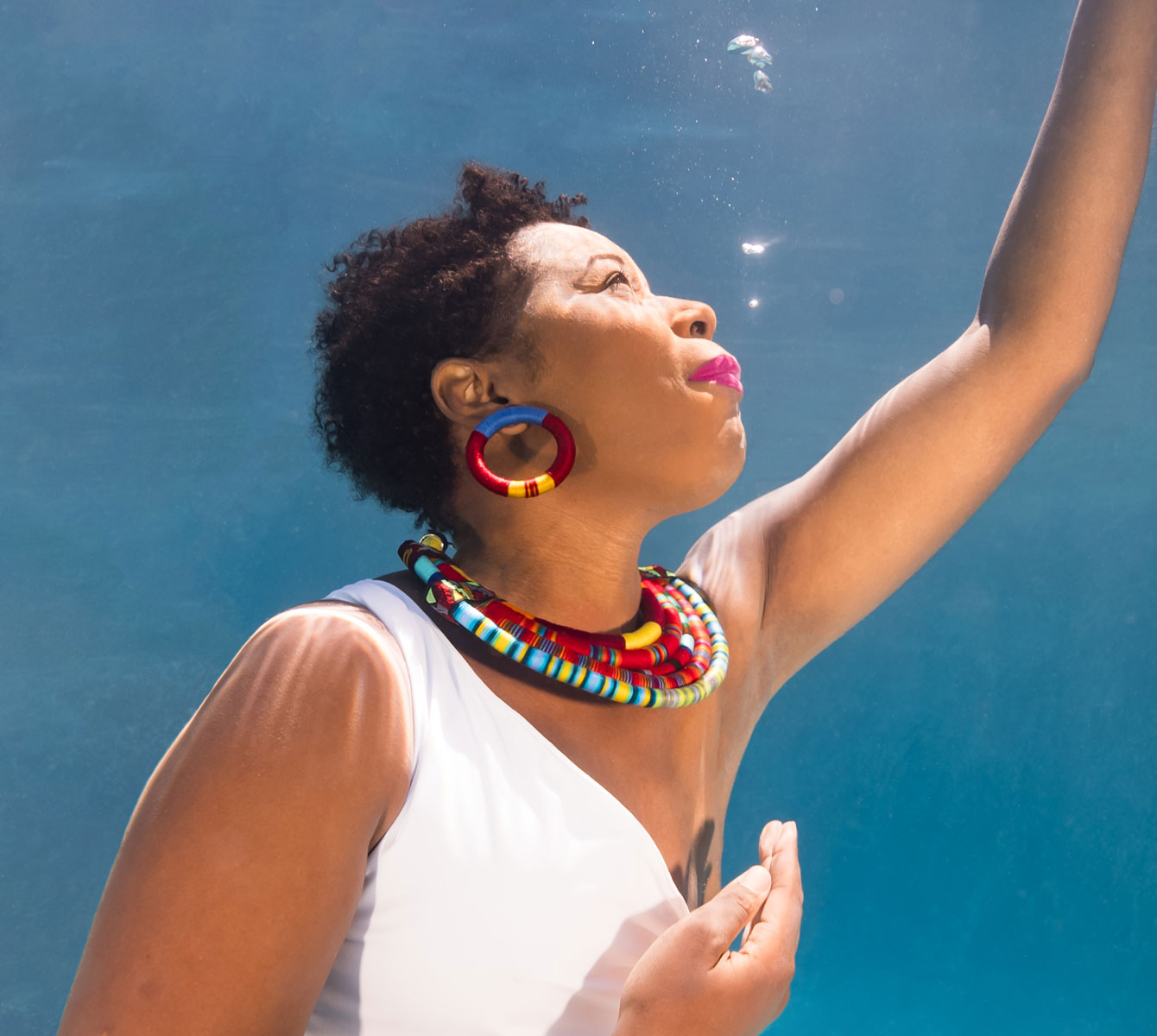
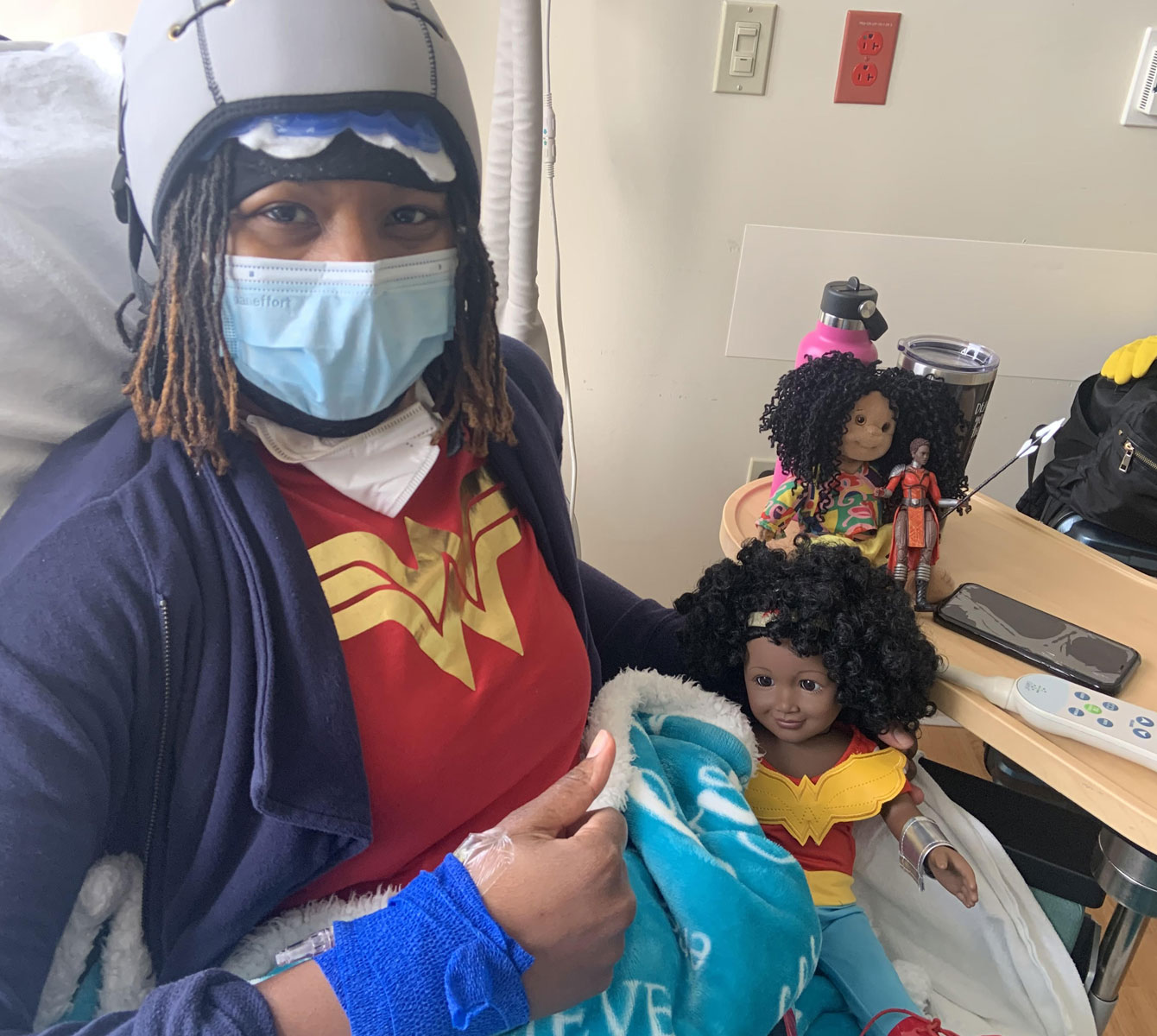
I’m Dr. Nekeia Wilson. I’m from Chicago and raised in the suburbs. I’m 47 years old and I’m a mental health professional and educator. I’m a proud and grateful breast cancer survivor and thriver!
The history of your cancer and survival story.
I was diagnosed in the spring of 2022 with hormone positive invasive mucinous adenocarcinoma and ductal carcinoma in situ (DCIS). Prior to the diagnosis, I experienced stress followed by loss that propelled me to prioritize my self-care, healing, and overall wellness. In addition to daily devotions and prayer, I also explored various holistic modalities such as Reiki, sound meditation, and breathwork. It enhanced my spiritual connection and unknowingly prepared me for what was to come.
A rare thyroglossal duct cyst appeared in my throat a month prior to the diagnosis. Surgical removal is often the recommended treatment for this type of cyst. I thought that was scary…until I found two lumps in my left breast two days after the CT scan on my throat. OMG…to say that I was overwhelmed would be an understatement!
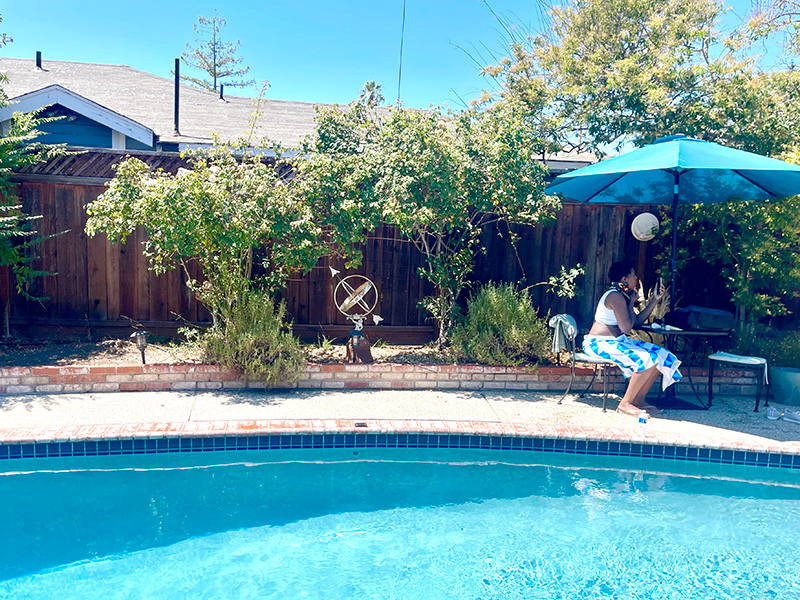
I found the lumps while laying in bed reading a book – In Touch with God: How God Speaks to a Prayerful Heart by Marie Shropshire. I believe my hand brushed my chest inadvertently or I had some minimal discomfort that prompted me to do a self-examination. One lump felt like a small soft bead or pearl. The other felt more firm, wide, and attached to my chest.
I thank God that the cyst in my throat eventually went away on its own after taking antibiotics. This allowed me to focus my attention on what was later confirmed to be breast cancer. I started the diagnostic process with the surgeon referred to me by my OBGYN of many years. Initially, the surgeon and plastic surgeon seemed to be a good fit. However, my research revealed information about BRCA genetic testing that the medical team neglected to share with me. I began to feel like a package on a factory conveyor belt which activated my self-advocacy skills.
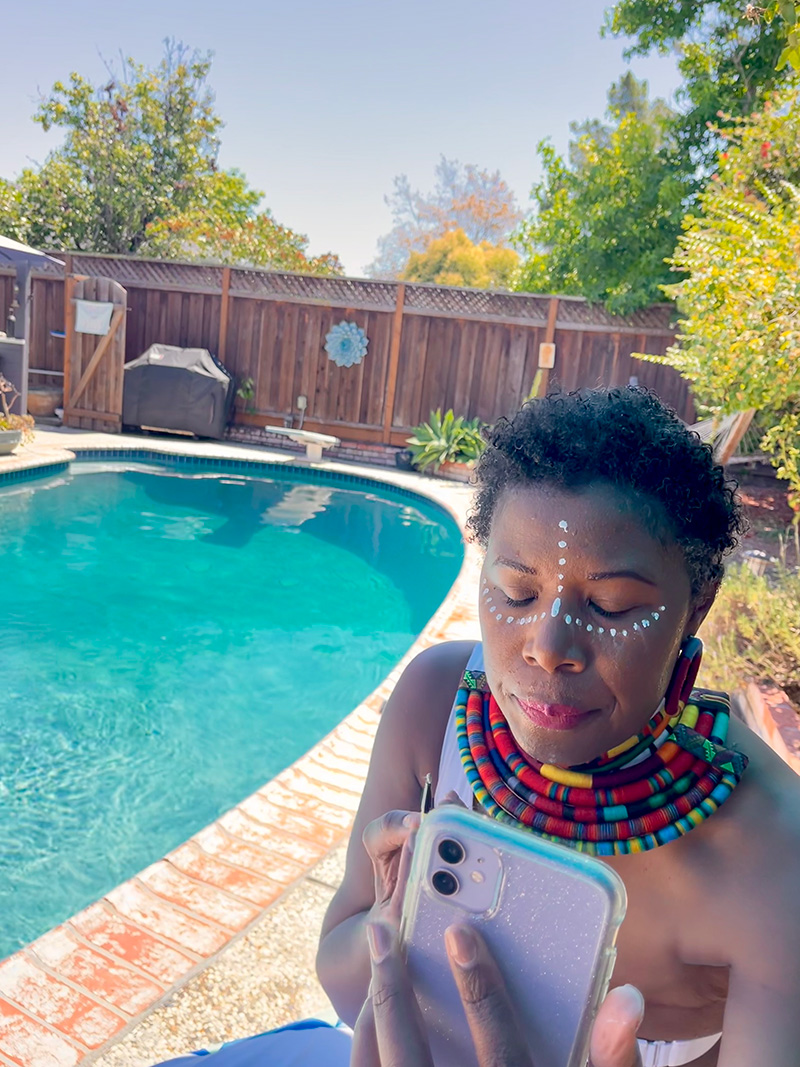
I learned that the breast cancer mortality rate for people who look like me is reportedly higher and that health disparities exist in cancer care for patients like me. I questioned if BRCA genetic counseling could be a preventative service offered to patients at higher risk. If so, who would pay for it? Some insurance companies may cover the expense (approx. $250) if there is a “strong” family history of cancer. Unfortunately, I had to pay out-of-pocket for BRCA testing despite a family history. It was worth it to me and offered valuable information to assist me with surgical decisions. Thankfully, I am not a carrier of the breast cancer gene mutation. I preferred to have as much diagnostic data as possible prior to deciding on lumpectomy versus mastectomy, but I was leaning towards lumpectomy.
The stress of the decision weighed heavily on me. It was important for me to feel seen and heard by the surgeon. As a result, I chose to seek a second opinion in a different healthcare system approximately a month into the diagnostic process. This led to a significant chain of events that included a repeat mammogram, ultrasound, and biopsy. The second provider had concerns that the initial report from the first provider did not include mention of suspicious findings on the initial images of my left breast. Apparently, the first medical team overlooked additional disease present in my left breast. I was told that it was small like sand but thank God it was caught!!! Unfortunately the additional disease was in a different section of the breast, which meant that a lumpectomy was no longer an option.
I quickly transferred my cancer care and had a unilateral mastectomy without reconstruction. I worked with an amazing surgeon and medical team that made me feel seen and heard. Despite this, I still obtained second opinions from three oncologists before deciding on chemotherapy. I did not have radiation but survived four rounds of chemotherapy. I iced my hands and feet during treatment to prevent neuropathy and it worked! I also paid out-of-pocket for the scalp cooling treatment to preserve my hair. Surprisingly, it worked too! I did not lose my hair but chose to cut it off after treatement. Scalp cooling is another preventative treatment like BRCA testing that I wish was more accessible.
Other services like occupational and physical therapy help to address/prevent cording and lymphodema. I received both therapies post-surgery and continue to receive physical therapy with an amazing certified lymphodema specialist. I prioritized supportive oncology services such as psychotherapy, massage therapy, and nutrition consultation to improve my quality of life. The transition to survivorship caught me by surprise, because I did not know why the wave of emotions came when the hardest parts were seemingly “over.”
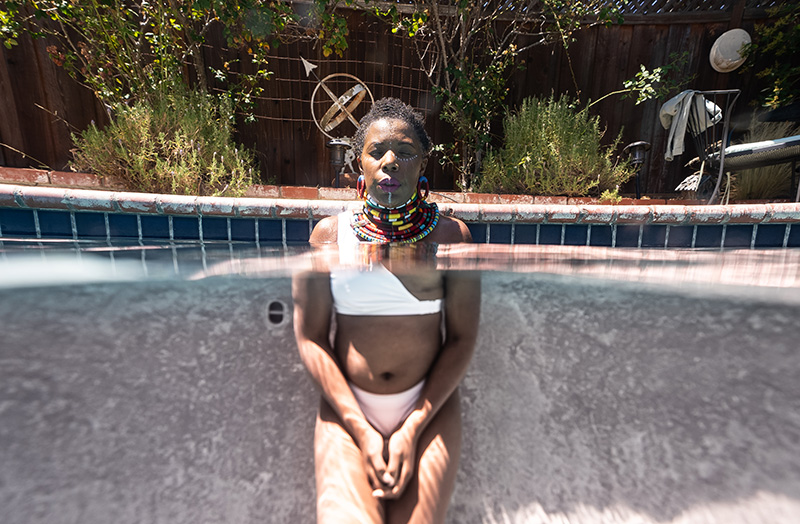
As a clinician, I would like to see more emphasis on patient mental health in cancer care and more resources for supportive oncology services. I considered the option of not fighting this battle but eventually decided that I was worth the fight. Self-love is essential. I was concerned about how the disease would impact me mentally and emotionally. I was concerned about my quality of life. I was concerned about my future. I was scared that I would not like what I see when I look in the mirror everyday.
I never thought that it would turn out this good! The decision to “go flat” without reconstruction was best for ME. I believe it is one of the reasons I recovered so quickly without complications. I’m unilaterally flat and use breast forms. I think me and my scar are beautiful. I feel more confident and sexy now than I did with two boobs. I’m grateful for the personal and spirtual growth that prepared me for this challenge. Words cannot express my gratitude for my tribe of supporters near and far. My parents, family, and friends were so loving and supportive.
What inspired you and why did you want to be involved in the project, Underwater Transformation?
I struggled to make the decision about reconstruction in part due to what I learned while researching tissue expanders. I was looking for a reconstruction option that did not require tissue expanders. I found one person online that had DIEP flap reconstruction without tissue expanders. There were not as many images of breast cancer survivors that looked like me. Somehow I came across Ericka Hart’s photos and felt inspired. I promised myself that I would take underwater photos when this was all over. I love the water! At the time I saw the photos, I was not able to be submerged in water due to the biopsies I had. Getting back into the water was something to look forward to.
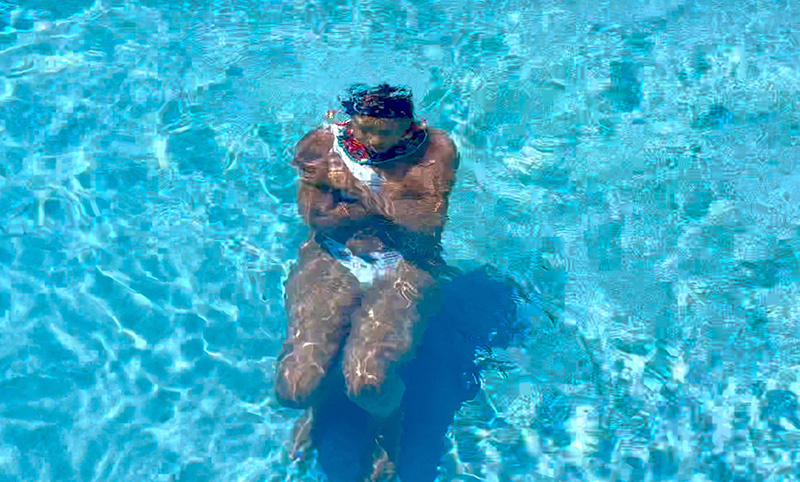
What were your plans for the photo shoot?
I tried not to have too many expectations. I just wanted to be uninhibited and free in the water. I wanted to honor my journey, celebrate my healing, release all that I lost along the way, and embrace positivity about my future.
How was the experience with an underwater portrait session?
I felt more and more comfortable with time. I could hear and see the camera flash under water. I felt in control of my breath with practice. I was afraid to go into the deeper end of the pool because I learned to swim by knowing I could always stand up. I do not like the way it feels to not feel the floor under my feet. I was able to play and have fun in the water when I released the pressure I placed on myself to go deeper.
How was your mood after you finished?
My mood was relaxed and calm.
How did you sleep the night of the photo shoot?
I slept very well after the shoot. It was just nice to have the time after to rest, be still, and reflect.
What does water mean to you?
I cried a lot during this diagnosis, treatment, and recovery. The best times were in the shower when I was praying and asking for strength to do hard things. Water is healing, refreshing, and restorative to me.
What is your dream? What’s your future?
It is my wish to live a long, healthy, and cancer-free life. I want to make memories with my loved ones, travel the world, and fulfill my purpose on earth. Representation matters and this is the first step to sharing my story in hopes that it will encourage, inspire, or help others in some way.
Do you think this experience could help overcome your trauma?
I definitely want to go back in the water to overcome my fear in the deep end. I want to gain greater breath control and confidence to move freely underwater. I plan to practice and return next year.
How was Erena working with you? What did she do?
Erena is patient with your insecurities and gives you time to practice. She does not instruct you too much and gives you the freedom to be you and move freely. I like the positive praise and feedback that Erena gives along the way. She seems to enjoy this work.
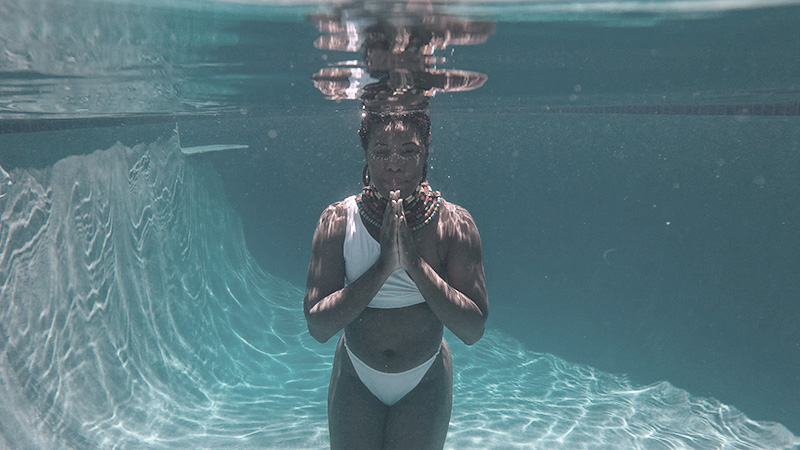
Would you recommend underwater transformation to other survivors or anyone?
I would recommend this because it is an affirming experience. It is a positive experience and lots of fun. No matter what a person has gone through…a little fun can lift one’s spirit. My advice to people coping with a breast cancer diagnosis would be to…
1. Listen to and know your body
2. Do your research – inquire about BRCA testing, scalp cooling, occupational/physical therapy, lymphedema, counseling, supportive oncology services, etc.
3. Believe in something bigger than you
4. Get a second opinion or more if needed
5. Remember that you are worth fighting for
6. Learn about the challenges of survivorship
7. You are loved and beautiful just the way you are
8. Good can come out of a bad situation
9. Make a decision that is best for YOU and brings you peace
10. Prioritize YOU and your overall wellness
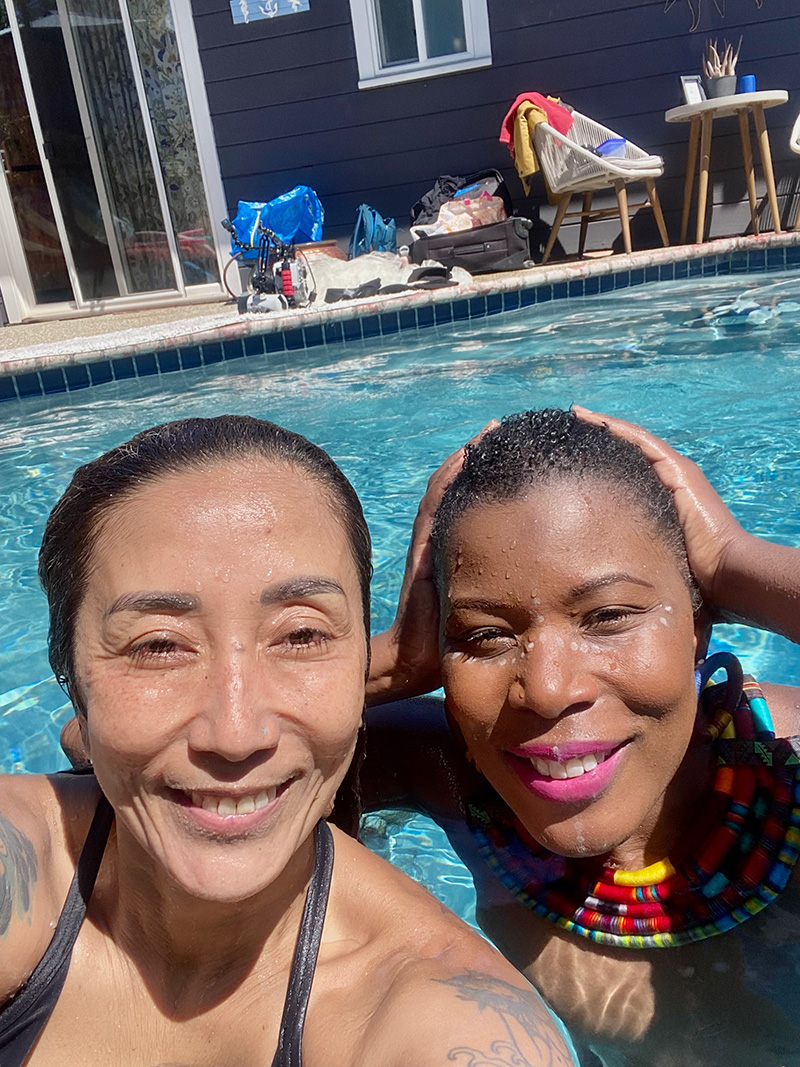
 Previous Project
Previous Project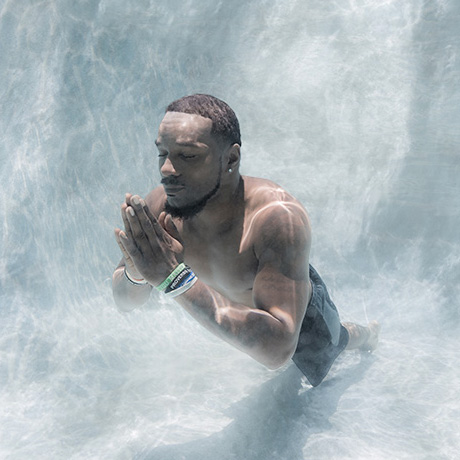 Next Project
Next Project
- Categories:
- Share Project :
 Previous Project
Previous Project Next Project
Next Project

